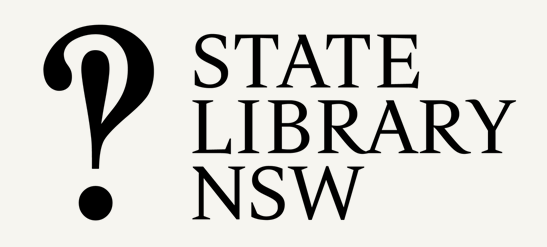Collaboration between NSLA members began fifty years ago in the form of the State Librarians Council, and later the Council of Australian State Libraries. These early organisations were formed primarily as advocacy bodies, lobbying for funding and recognition from government.
Today NSLA operates as an incorporated association with a leadership role in the library sector. Our ten members comprise the national, state and territory libraries of Australia and New Zealand. Our wide-ranging collaborative program is designed to continually improve our collections and services for the benefit of the communities we serve.
NSLA celebrates its 50th anniversary, marking five decades of collaboration and continuous service to the library sector in Australasia.
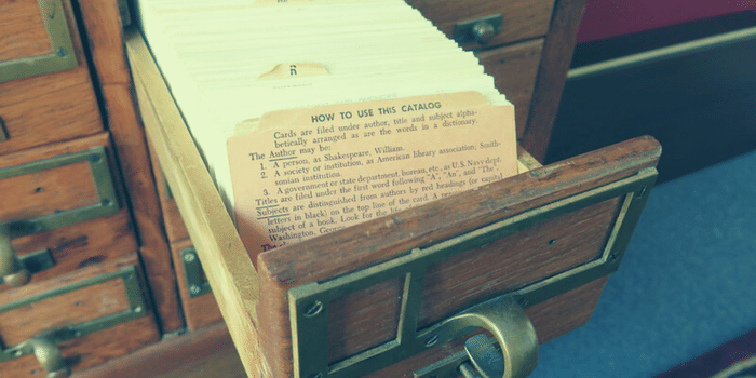
NSLA begins work with ALIA, CAUL, CAVAL and AIATSIS on a sector-wide set of guidelines for description of First Nations collections.
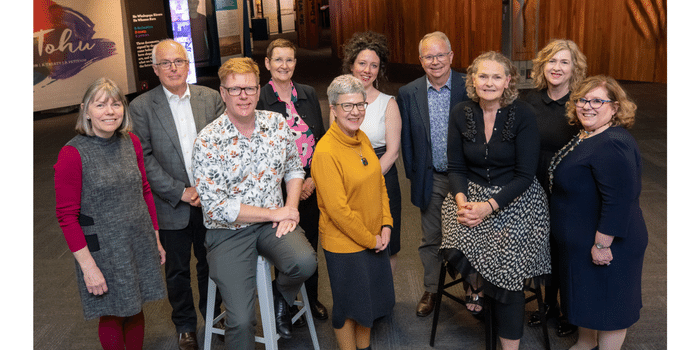
NSLA members make the important decision to register as an incorporated association under ACT legislation, and move the NSLA headquarters to Canberra. This establishes NSLA as an independent entity alongside library sector peak bodies such as ALIA, LIANZA, CAUL and ALACC.
NSLA is represented by Damien Webb on the OCLC project Reimagine Descriptive Workflows, designed to better understand and address harm caused by cultural institutions’ collection description practices.
In July 2022, we host a webinar to discuss how the project's framework can be applied in the Australasian region.
A detailed analysis of over 18,000 records of contemporary Indigenous collections is undertaken by four NSLA libraries (SLQ, SLNSW, NLA and SLWA) working together with the NSLA office and expert researchers, to help identify gaps in our practice.
Australian Research Council funding is awarded to support a LIEF grant led by Swinburne University with over twenty tertiary and cultural sector partners, to build an “EaaSI” network in Australia for better access to legacy born digital collections.
NSLA's 2020-2023 strategic plan is launched, identifying three priorities for collaboration:
- shared digital systems for effective delivery of national collections and programs
- strengthening community identity by ensuring that our collections reach and reflect the full diversity of our population
- building cultural and intellectual capital by developing a strong evidence base for the library sector and sharing our expertise as a trusted voice in national policy.
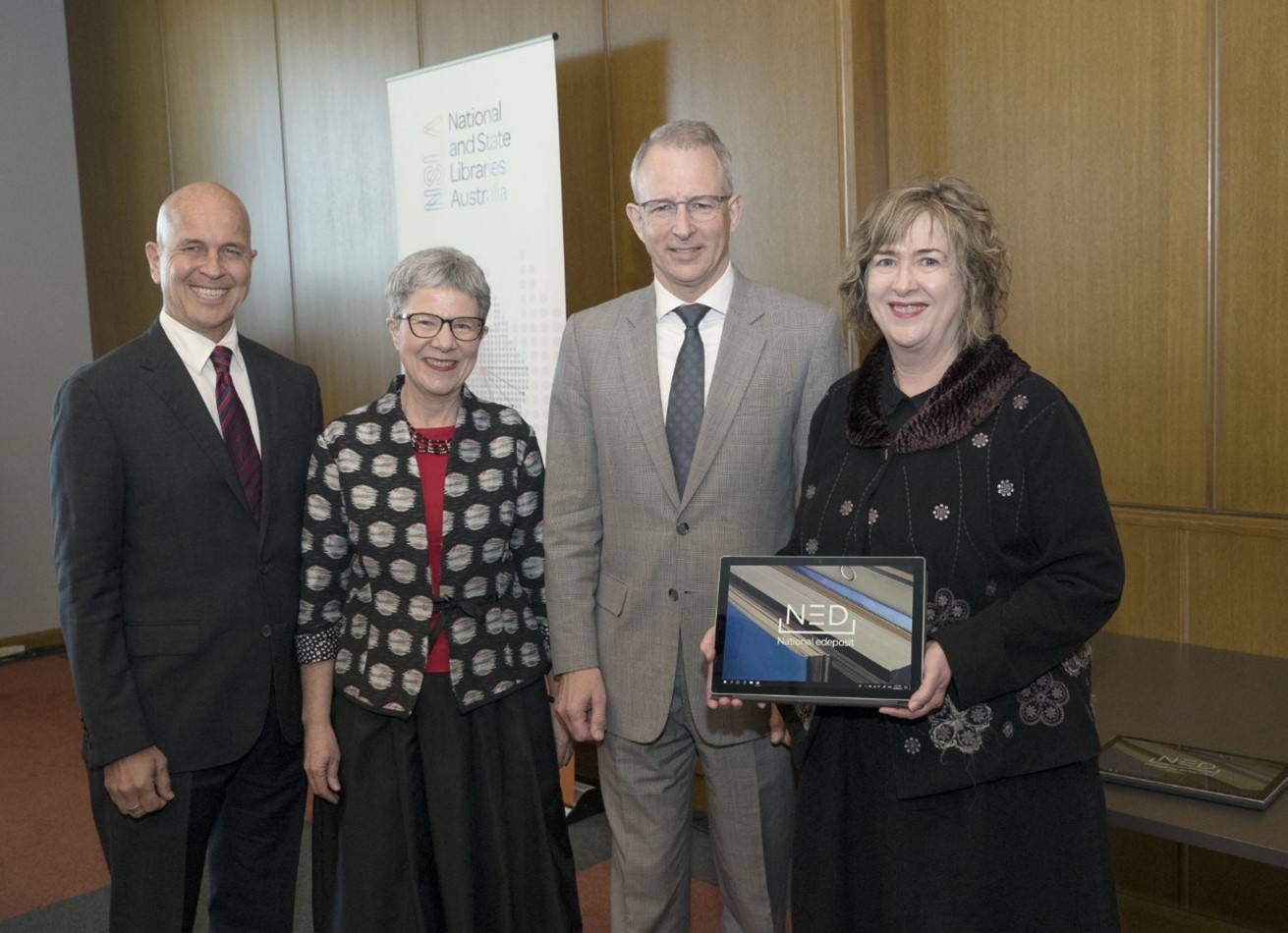
The National edeposit service (NED) is launched after a four-year design and build phase. It represents a world-first collaboration to create a unified system capable of collecting, preserving, managing, and providing access to electronic publications from across Australia under legal deposit legislation. The service is formally launched by the Hon. Paul Fletcher MP in his role as Minister for Communications, Cyber Safety, and the Arts.
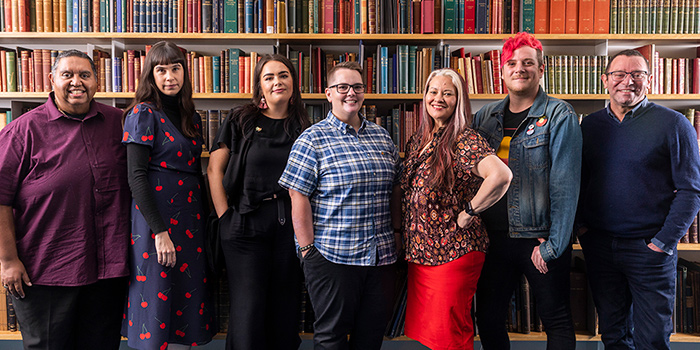
The three-year Culturally Safe Libraries Program is launched with the aim of improving cultural safety for Aboriginal and Torres Strait Islander library staff and visitors by ensuring that all library staff are informed about the cultural heritage of Australia’s First Nations peoples, and all collections staff are trained in collection content and access protocols. The program includes
Core Cultural Learning delivered to 2000 employees; Indigenous collections workshops in all Australian NSLa libraries; shared principles; and a set of publicly-accessible online resources. All Australian NSLA libraries commit to an annual audit report mapped to the ATSILIRN Protocols, to track and transparently report progress in cultural capability.
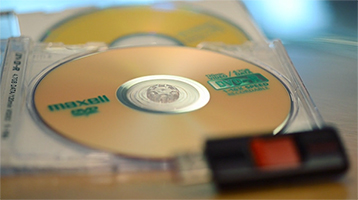
NSLA’s Digital Collecting project group shares the steps you can take at home to ensure your digital treasures last a lifetime.

NSLA partners with the ABC and AIATSIS to commemorate the 50th anniversary of the 1967 referendum for Indigenous constitutional recognition in Australia.
The Right Wrongs website shares the story of the referendum through archival documents, photos, videos, ephemera and audio recordings.
Right Wrongs was an initiative of NSLA's Indigenous Project.
The Data Unleashed professional learning program is held for NSLA staff. Part I raises awareness about research data and its role in NSLA libraries. Part II uses the Library Carpentry model for hands-on work with collections data.
Born Digital 2016 is run as a week-long social media campaign exploring questions around collecting and preserving digital content through a series of video interviews with experts examining the technical, social and philosophical questions of our digital lives.
Linked up, Loud and Literate: Libraries enabling digital citizenship is run as a series of events held at the National Library of New Zealand, National Library of Australia and State Library of South Australia.
The seminars and workshops look at how libraries, schools and cultural institutions can best empower community members to be confident, capable and engaged citizens.
The two-year Leading Collaboration strategic plan is released in 2015. Its two broad strategies are articulated as “shared solutions”, and “communication and influence”.
The Heritage Collections Forum is hosted at the State Library of Queensland, bringing together practitioners from across NSLA libraries with expertise in collection management (archives, pictures and maps), metadata, digital collection and preservation, copyright and Indigenous collections.
Representatives on NSLA’s Storage Project from the National Library of Australia produce a report looking at the environmental management conditions in place across NSLA libraries, and propose options for further decreasing energy use.
NSLA releases its first formal position statement on Aboriginal and Torres Strait Islander services and collections, sharing a commitment to working in accordance with nationally and internationally recognised protocols.
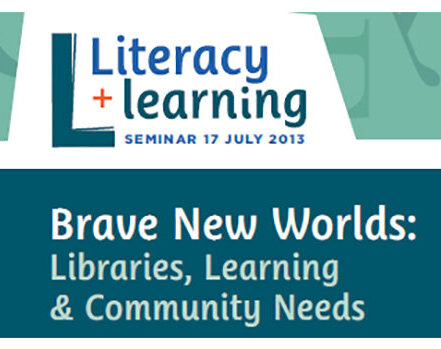
Brave New Worlds: Libraries, learning and community needs brings together professionals working in libraries, universities, adult and school literacy programs, and non-profit organisations to explore the role of our state, territory and national libraries in community learning.
NSLA’s Pictures Project produces a report into management of large pictorial collections based upon the first ever survey of such collections across member libraries.
The two-day Digital Collecting Forum is hosted by State Library Victoria.
An accompanying report sets out the major themes of the forum and corresponding proposals for NSLA.
A one-day seminar is held at the State Library of Queensland for library, archives and museum professionals. Speakers from Australia and New Zealand share their experiences of fire, storm and flood, and offer lessons learned in disaster preparedness.
NSLA commissions an extensive report exploring various funding models and international case studies for digitisation projects, including private-public partnerships.
NSLA's Archival Collections working group produces a detailed report with recommendations based on the findings of two surveys designed to document current practice and performance in archival processing.
The release of NSLA’s strategic plan, The Big Bang: Creating the new Library Universe (2007-09), represents a radical departure from previous ways of working, with a collective focus on digital services, processes and infrastructure. The plan becomes a formal program of work built on three priorities: One library; accessible content; and enabling people. The work taking place against these priorities is re-articulated in NSLA’s Re-imagining Libraries strategic plans for 2008-2011, and 2012-2016.
The Council of Australian State Libraries changes its name to National and State Libraries Australasia (NSLA). The first meeting of NSLA takes place at the State Library of Western Australia in September 2006.
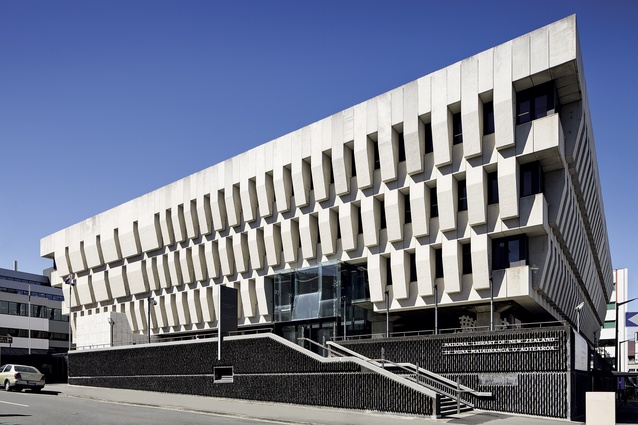
The National Library of New Zealand begins attending CASL meetings as observer, then as a member from 2005.
Image: Paul McCredie
The State Libraries Council changes its name to the Council of Australian State Libraries (CASL).
The SLC changes its name from State Librarians Council to State Libraries Council.
The ACT Heritage Library (later Libraries ACT) joins the State Librarians Council.
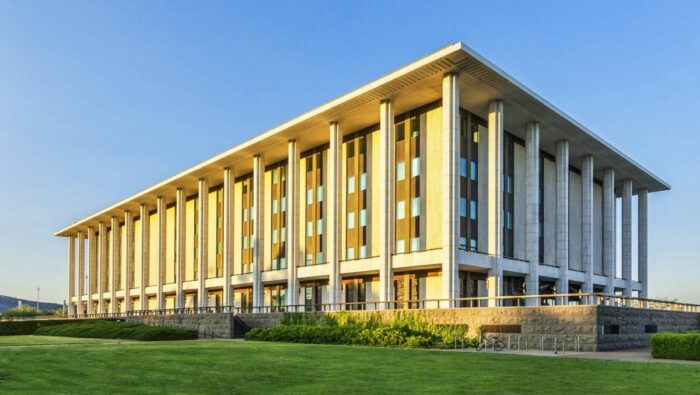
The National Library of Australia joins the State Librarians Council as an observer, then as a member.
Image: Shutterstock
The Northern Territory Library (later LANT), joins the State Librarians Council.
The State Librarians Council (SLC) meets for the first time at State Library Victoria on 30 March 1973. The meeting is called by the State Librarian for Victoria, Mr Ken Horn.



